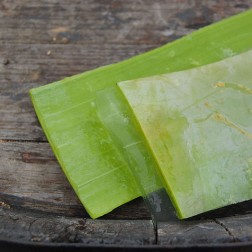Sunshine is essential for all life on earth, and without it, we would cease to exist. However, too much of anything can be a bad thing, and sunshine is no exception.
According to the Skin Cancer Foundation, one in five Americans will develop skin cancer during their lifetime. Sun exposure also increases premature skin aging and can cause a painful sunburn. So we all need to get real about using sunscreen and using it properly.
Applying sunscreen or wearing protective clothing before you head to the beach can prevent you from getting too much sun exposure.
Choose sunscreen wisely
With so many sunscreens on the market, how do you know which one is best? Start by looking at the SPF factor and the active ingredients. SPF, the Sun Protection Factor, measures how well the sunscreen will protect you against UVB rays, known to burn and cause skin cancer. UVA rays are also a threat to your skin, but many sunscreens do not protect against them.
For a sunscreen that covers both UVA and UVB rays, choose one that uses zinc oxide and titanium oxide as the main active ingredients.
This type of sunscreen tends to be healthier since it sits on top of your skin, like a mask, rather than being absorbed into the body.
At a minimum, you want a sunscreen that has an SPF rating of 15 or higher and reapply every two hours. It’s important to know that the SPF ratings do not work sequentially. For example, a sunscreen with SPF 15 will block 93% of UVB rays, SPF 30 will block 97% of UVB rays, and SPF 50 will block 98% of rays. Ratings higher than SPF 30 offer little benefit and are more of a marketing ploy. Don’t think you’re fully protected just because you have a SPF of 50.
Protective clothing is important, too.

Have you ever opted to put a shirt instead of worrying about sunscreen? Unfortunately, many clothing items, like a white cotton T-shirt, provide almost no protection against the sun’s harmful rays.
There are many companies making clothing specifically to block out UVA and UVB rays and are rated with UPF ratings instead of SPF.
Any clothing rated UPF 15 or above is considered good. UPF 50 is as high as the rating goes and offers slightly more coverage than UPF 15.
As a comparison, a white cotton T-shirt is rated only UPF 5. When clothing gets wet, the sun protection rating cuts in half.
If you’re unsure of what to choose in your wardrobe as a sun-protective outfit, lean towards dark-colored fabrics that have a tighter weave. You will find them labeled “rashguard” and with informative tags attached on their UPF. Hats are also one of the simplest ways to shielding the face and eyes from the sun.
Don’t get burned…but just in case

Aloe vera gel is known to soothe sun-burnt skin.
A sunburn happens when ultraviolet light damages and kills skin cells. To protect and repair the area, blood rushes to the surface of the skin, causing a burning sensation.
You can treat painful sunburns with aloe vera gel and by applying a cool, wet cloth to the burned areas.
According to the Skin Cancer Foundation, just five sunburns increase your chances of getting melanoma, a serious form of skin cancer. It’s worth doing everything possible to protect yourself whenever you step out into that feel-good sunshine.
Protect your skin with some good sunscreen, proper clothing and a terrific hat and go enjoy your day at the beach! Dermatology Specialists of Florida is a good local resource as well!
If you ❤ the beach, be sure to follow 30A on Facebook and @hey30a on Instagram where we share truly amazing beach stories, photos and videos every day!
 CHANTAE REDEN is an adventure writer based in Suva, Fiji, who is an avid freediver, scuba diver, surfer, and kitesurfer. She is obsessed with manta rays and talks about sharks as if they were A-list celebrities. You can read more salty stories on her blog, The Salt Sirens.
CHANTAE REDEN is an adventure writer based in Suva, Fiji, who is an avid freediver, scuba diver, surfer, and kitesurfer. She is obsessed with manta rays and talks about sharks as if they were A-list celebrities. You can read more salty stories on her blog, The Salt Sirens.

